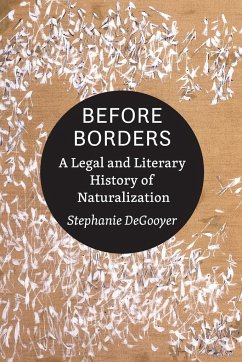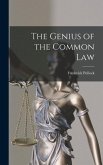An ambitious revisionist history of naturalization as a creative mechanism for national expansion. Before borders determined who belonged in a country and who did not, lawyers and judges devised a legal fiction called naturalization to bypass the idea of feudal allegiance and integrate new subjects into their nations. At the same time, writers of prose fiction were attempting to undo centuries of rules about who could--and who could not--be a subject of literature. In Before Borders, Stephanie DeGooyer reconstructs how prose and legal fictions came together in the eighteenth century to dramatically reimagine national belonging through naturalization. The bureaucratic procedure of naturalization today was once a radically fictional way to create new citizens and literary subjects. Through early modern court proceedings, the philosophy of John Locke, and the novels of Daniel Defoe, Laurence Sterne, Maria Edgeworth, and Mary Shelley, DeGooyer follows how naturalization evolved in England against the backdrop of imperial expansion. Political and philosophical proponents of naturalization argued that granting foreigners full political and civil rights would not only attract newcomers but also better attach them to English soil. However, it would take a new literary form--the novel--to fully realize this liberal vision of immigration. Together, these experiments in law and literature laid the groundwork for an alternative vision of subjecthood in England and its territories. Reading eighteenth-century legal and prose fiction, DeGooyer draws attention to an overlooked period of immigration history and compels readers to reconsider the creative potential of naturalization.
Bitte wählen Sie Ihr Anliegen aus.
Rechnungen
Retourenschein anfordern
Bestellstatus
Storno








